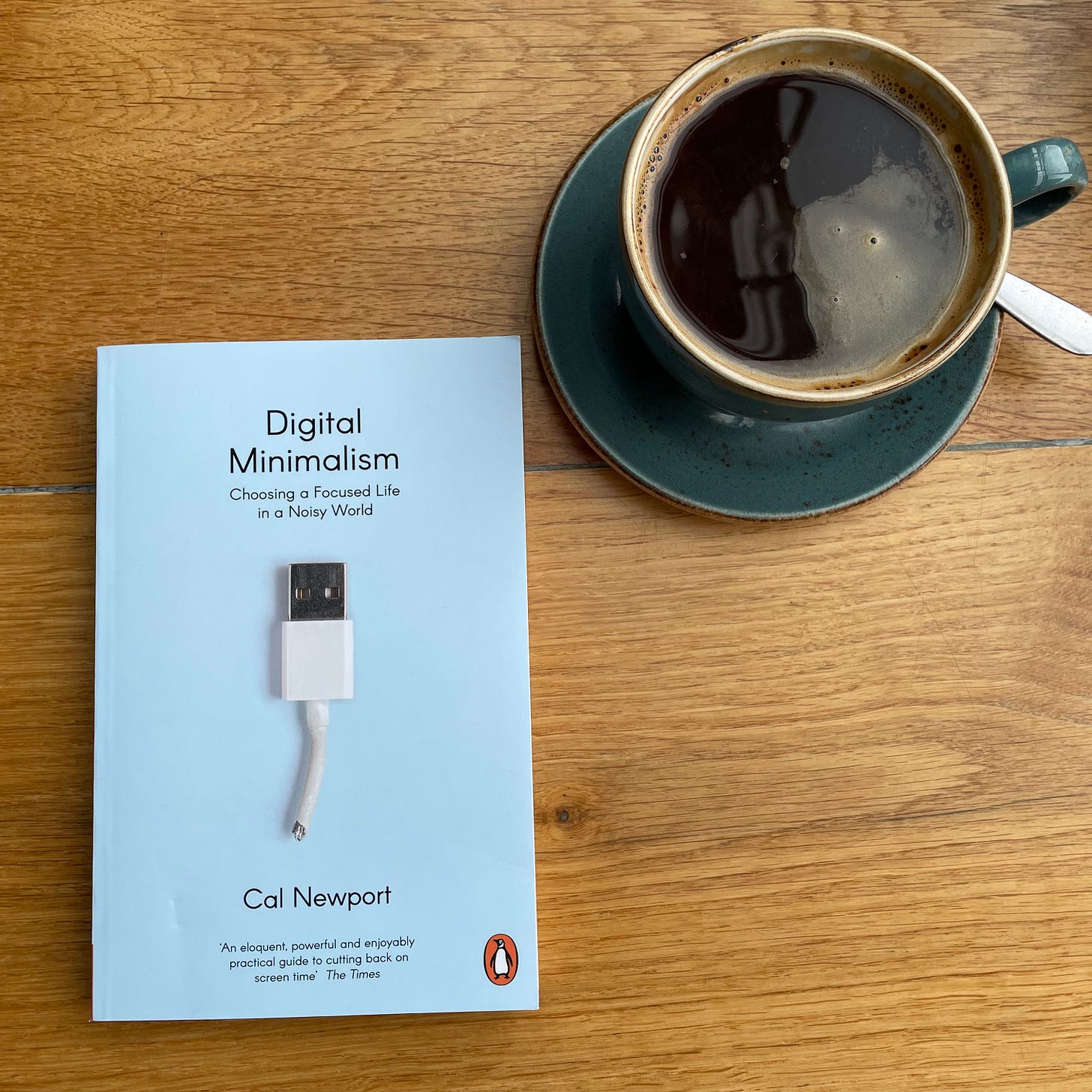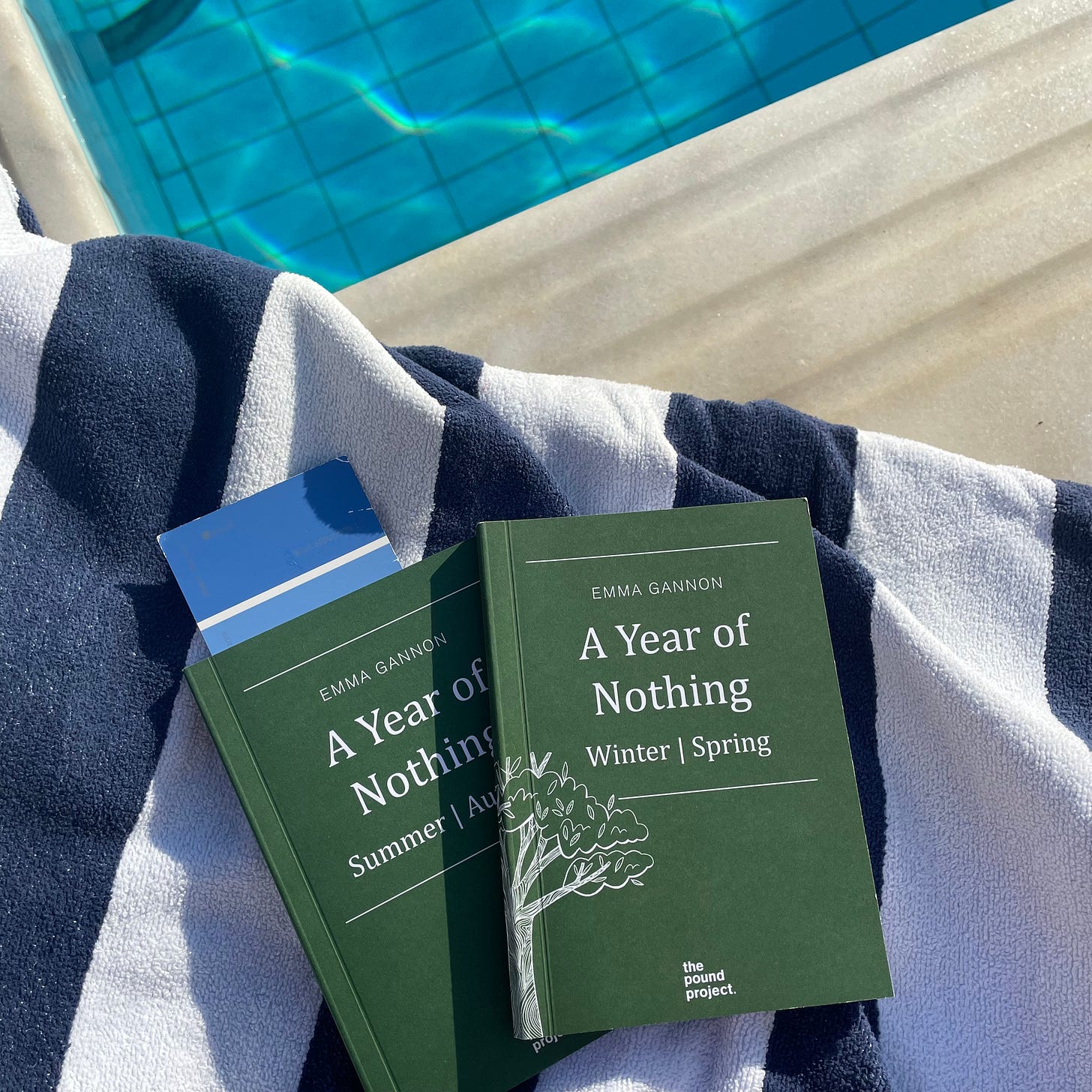The 10 best books to read to help with planning and productivity
Kickstart your year with these inspiring reads to help you build habits, stay focused, and achieve your goals
Happy New Year! And welcome to Wild Writing with Sanjida if you’re new, and if you’re not, I’m so pleased to have you here with me on this writerly journey.
I want to start the year with something I’ve been working on for a very long time - it’s a workshop I’ve been delivering to PhD students at various universities for several years. Each year I’ve adapted and honed it. But for quite a while, I’ve thought about shaking it up and turning it into a masterclass for writers - and, ta da! It’s here!
It’s a 3-part masterclass called The Writer’s Path: How to Plan, be Creative and Find Flow. It’s for any writer at any stage of their journey, and it’s designed to give you the tools you need no matter what your block, problem or issue is.
The first one - Planning for Success, starts next week, so to get us in the mood, and to help you kickstart your year with clarity and purpose, I’ve curated a list of 10 exceptional books on planning and productivity.
These books are filled with practical advice, evidence-based strategies, and inspiring insights to help you work smarter, build better habits, and focus on what truly matters.
I usually listen to non-fiction books whilst I’m working out, and I know a book is good, when I’ve then bought it in another format - hardback or for kindle - so I don’t have to keep pausing my workouts to take notes!
So whether you’re planning a creative project, rethinking how you use your time, or striving to make 2024 your most productive year yet, these books are here to guide and inspire you.
‘You don’t have to be perfect. You just need to be better than yesterday.’ James Clear
1. Atomic Habits by James Clear
Summary: In Atomic Habits, James Clear explains how small, consistent changes lead to remarkable results over time. He introduces the concept of habit stacking, where you attach a new habit to an existing one—for example, writing one sentence in your journal immediately after making your morning coffee. Side note: this still hasn’t ‘stuck’ for me, unfortunately, but a goofy one that has is that I now do calf stretches whilst brushing my teeth 🤓.
Clear also emphasises the importance of creating systems rather than solely focusing on goals, such as setting up a dedicated writing space to make writing easier and more appealing.
Another practical strategy is the use of environmental design to shape behaviour. For instance, keeping your workspace tidy and removing distractions like your phone can make it easier to focus. Clear also advocates for the two-minute rule: breaking down new habits into tiny, manageable steps, like committing to write for just two minutes a day to build momentum. He offers methods for breaking bad habits too, such as making them more difficult by introducing friction—like storing your phone in another room while you work.
Why it’s useful: This book is a practical guide to habit formation, showing readers how to make positive behaviours automatic while eliminating negative ones. Its actionable strategies are especially valuable for writers and creatives seeking consistency and motivation.
‘You do not rise to the level of your goals. You fall to the level of your systems.’ James Clear
2. The 7 Habits of Highly Effective People by Stephen Covey
Summary: In The 7 Habits of Highly Effective People, Stephen Covey outlines seven principles that form the foundation of personal and professional effectiveness.
Be Proactive: Take responsibility for your actions and focus on what you can control rather than reacting to circumstances.
Begin with the End in Mind: Define your goals and create a personal mission statement to align daily actions with long-term objectives.
Put First Things First: Prioritise important tasks over urgent but less meaningful ones, focusing on what truly matters.
Think Win-Win: Seek mutually beneficial solutions in interactions and relationships.
Seek First to Understand, Then to Be Understood: Practice empathetic listening to build trust and improve communication.
Synergise: Leverage the strengths of others through collaboration to achieve outcomes greater than individual efforts.
Sharpen the Saw: Continuously renew yourself physically, mentally, emotionally, and spiritually to sustain effectiveness.
Why it’s useful: Covey’s framework is holistic, addressing both mindset and practical habits to help readers improve their productivity, relationships, and personal fulfilment. Many of us writers, for instance, can benefit from setting clear goals (Habit 2), focusing on creative tasks (Habit 3), and collaborating effectively with editors or peers (Habit 6). For me personally, I realised that I needed to set aside more time to ‘sharpen the saw’.
‘The key is not to prioritise what’s on your schedule, but to schedule your priorities.’ Stephen Covey
3. The 12 Week Year by Brian Moran and Michael Lennington
Summary: This book argues that annual goal-setting can lead to procrastination and suggests working within a 12-week time frame instead. By treating each 12 weeks as a year, you can maintain focus and urgency.
I go into this in detail in Part I of my masterclass on Planning for Success and give you a template to use.
Why it’s useful: The 12-week framework provides a practical way to break down long-term goals into actionable steps, ensuring progress and momentum.
‘A vision without a plan is a pipe dream. Writers who create clear, focused plans are the ones who turn ideas into completed works.’ B Moran and M Lennington
4. The 80/20 Principle by Richard Koch
Summary: In The 80/20 Principle, Richard Koch explains the Pareto Principle: 80% of outcomes stem from 20% of efforts. He provides practical strategies to identify and focus on the most impactful tasks, relationships, and goals in both personal and professional contexts. For example, Koch advises conducting a time audit to pinpoint activities that yield the highest returns and eliminating or delegating those with minimal impact.
He also suggests applying the principle to prioritise clients or projects, focusing on the 20% that generate 80% of profits or satisfaction. Another strategy involves simplifying decision-making by concentrating only on the most critical factors influencing success, allowing for more efficient resource allocation. Koch emphasises the importance of saying no to low-value commitments and dedicating time to activities that provide the greatest results and joy.
Why it’s useful: This book offers a straightforward yet transformative approach to increasing productivity by teaching readers how to identify and amplify what truly matters while reducing wasted effort.
‘A few things are always much more important than most things. Focus on those, and the rest will follow.’ Richard Koch
Side note: I haven’t read Essentialism by Greg McKeown but if Koch isn’t for you, McKeown might be as he provides a more philosophical take on the importance of simplicity and clarity.
‘The secret to productivity isn’t doing more; it’s doing the right things better.’ Shaa Wasmund
5. Do Less, Get More by Shaa Wasmund
Summary: I love this book! I wish I could! In Do Less, Get More, Shaa Wasmund provides practical strategies for simplifying your workload by focusing on what truly matters and letting go of unnecessary tasks. She emphasises the importance of prioritising high-impact activities, setting boundaries, and saying no to commitments that don't align with your goals.
Wasmund also offers advice on automating repetitive tasks, delegating effectively, and creating systems that free up time and mental space. Okay, I’ve convinced myself, I’m going to read this yet again!
Why it’s useful: This book is particularly helpful for those juggling multiple responsibilities, offering actionable tips to declutter your schedule and focus on achieving meaningful results without burning out.
‘You don’t have to do everything to be successful. Just do what matters most.’ Shaa Wasmund
6. The Pomodoro Technique by Francesco Cirillo
Summary: Cirillo’s simple yet effective technique involves breaking your work into focused intervals (of 25 minutes), followed by short breaks. This helps manage time and maintain concentration.
I go into this in detail in Part I of my masterclass on Planning for Success.
Why it’s useful: It’s perfect for combating procrastination and improving focus, especially for tasks that feel overwhelming.
‘The key to productivity is to work on things that matter.’ Francesco Cirillo
7. Digital Minimalism by Cal Newport
Summary: Newport explores the overwhelming influence of digital technology on our lives and offers a philosophy for reclaiming your time and focus. Digital minimalism encourages deliberate use of technology in ways that serve your values and goals.
What’s incredible about this book is how foresighted Newport was - he was writing this and warning us about the dissipation of our focus and our attention, when I (and many others in the UK) were just getting our first smart phones and wondering if they’d be useful.
Why it’s useful: In a world where constant notifications and social media sap productivity, this book provides a clear framework for regaining control over your attention and improving your focus.
‘The key to living well in a high-tech world is to spend much less time using technology.’ Cal Newport
Side note: Top of my TBR pile is Deep Work by Cal Newport. It complements Digital Minimalism but focuses specifically on the ability to focus deeply on meaningful work in a world full of distractions. It’s especially relevant for writers and creatives who need to protect their focus to produce high-quality work.
‘The ability to concentrate intensely is a skill that must be trained.’ Cal Newport
8. The 4-Hour Work Week by Tim Ferriss
Summary: In The 4-Hour Work Week, Tim Ferriss challenges traditional notions of work by introducing the concept of lifestyle design. He advocates for focusing on high-value tasks, automating workflows, and outsourcing lower-value activities to free up time for what matters most.
An extreme example he presents is negotiating remote work to live in cheaper locations worldwide while maintaining the same income—a concept known as geoarbitrage. Ferriss also suggests outsourcing time-consuming personal and professional tasks to virtual assistants, often located in poorer countries, to maximise efficiency.
Who wouldn’t want to be Airbnb-ing a villa with an infinity pool in Brazil whilst earning a gazillion dollars, but whilst I did find this book inspirational in many ways, I find Ferriss’ reliance on outsourcing to low-wage countries ethically concerning, particularly regarding fair pay and the potential exploitation of workers.
Why it’s useful: The book can inspire you to evaluate how you spend your time and encourages creative thinking about work structures, even if some methods require adaptation for ethical and practical reasons.
‘Being busy is most often used as a guise for avoiding the few critically important but uncomfortable actions.’ Tim Ferriss
9. The Success Myth by Emma Gannon
Summary: Gannon challenges conventional definitions of success, arguing for a more holistic approach that prioritises happiness, fulfilment, and mental well-being over societal expectations. And of course, we love Emma’s writing over here
Why it’s useful: It helps reframe what productivity and planning mean by aligning them with personal values rather than external pressures.
‘The greatest success stories often come from those who have redefined what success means to them.’ Emma Gannon
10. The Code of the Extraordinary Mind by Vishen Lakhiani
Summary: In The Code of the Extraordinary Mind, Vishen Lakhiani provides a step-by-step guide to breaking free from traditional societal norms—what he calls ‘Brules’ (bullsh*t rules)—to design a life aligned with your values and aspirations.
He introduces practical tools like the practice of ‘Blissipline’, which involves daily gratitude and visualisation exercises to rewire your brain for positivity and focus. (I love his Six-Phase Meditation Practice.) Another example is his approach to goal setting, known as the ‘Three Most Important Questions’—focusing not just on what you want to have, but also on how you want to grow and what experiences you want to create.
Lakhiani also offers techniques for rewiring limiting beliefs, such as the ‘Rewrite Your Models of Reality’ exercise, where you identify outdated beliefs and replace them with empowering ones. Additionally, he advocates for building systems to optimise personal growth, including learning frameworks like conscious goal setting and regular self-assessments.
Why it’s useful: This book combines mindset shifts with actionable exercises, helping you escape rigid thinking and design a life that prioritises growth, creativity, and fulfilment.
‘Your life is a masterpiece, and you are the artist. Break free from the rules that limit you and create your own extraordinary vision.’ Vishen Lakhiani
Bonus Side Note:
I have these on my TBR list too, along with Deep Work, so I thought you’d share them with you although I can’t vouch for them yet.
Make Time by Jake Knapp and John Zeratsky -
a toolkit of strategies to help you take control of your day and focus on what matters most. Knapp and Zeratsky suggest creating a daily ‘Highlight’—one key activity that brings you joy or progress—and intentionally designing your day around it.
The War of Art by Steven Pressfield -
designed for writers and creatives and addresses the internal resistance that often prevents us from doing our work. Pressfield provides inspiration and practical advice for overcoming procrastination and self-doubt.
I think these ten books, plus the bonus four extras, cover the whole she-bang - from habit formation to redefining success, goal setting, setting priorities, and managing your time more effectively. Each one has practical tools, a unique take, and will help you plan and achieve your goals with greater clarity, focus, and efficiency.
Which of these books have you read, and which are you excited to try?
Let me know in the comments or share your own productivity favourites!








